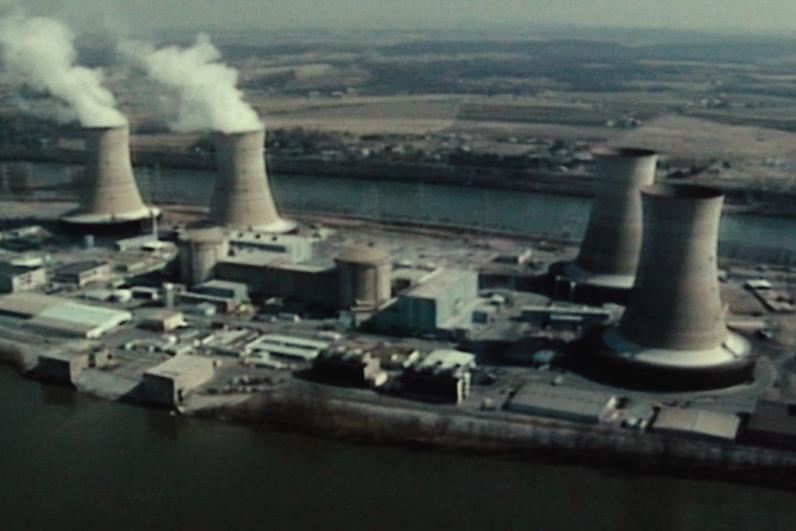'Meltdown: Three Mile Island,' streaming, Netflix
NEW YORK (CNS) -- As the world faces the threat of climate change, some advocate nuclear power as a safe, clean alternative to fossil fuels. The cautionary retrospective "Meltdown: Three Mile Island" casts the wisdom of such a proposition into considerable doubt.
Available on Netflix, the surprisingly intimate and compelling docuseries airs in four one-hour installments. Veteran husband-and-wife filmmakers Michael and Carla Santos Shamberg ("Erin Brockovich") executive produced the show, which Kief Davidson directed.
Free of most objectionable content, the program does include occasional profane and vulgar language. Although the underlying theme, as well as such incidental topics as cancer, a tragic car accident and criminality, make "Meltdown" inappropriate for kids, it's probably acceptable for teens as well as grown-ups.
The malfunctioning of Unit 2 of Londonderry Township, Pennsylvania's, Three Mile Island Nuclear Generating Station -- which began at 4 a.m. local time March 28, 1979 -- remains the worst such accident in U.S. history. It irrevocably altered both the future of the industry and the lives of all directly affected by it.
Through interviews with nearby residents, plant employees, regulators, lawyers, advocates, journalists and elected officials, viewers are given a vivid reconstruction of this traumatic event. Among those featured is chemist Ed Houser, who recalls that a preliminary investigation revealed radiation levels in the area to be 100 times beyond what was considered safe.
Three Mile Island's owners, Metropolitan Edison -- for whom Houser worked -- initially tried to downplay the public's concerns. The ensuing confusion, many believe, hampered the efforts of the commonwealth's then-governor, Republican Richard Thornburgh, to deal with the crisis calmly and straightforwardly.
Pregnant women and children under 5 were told to evacuate while others were instructed to stay inside and await further guidance. The result, according to Thornburgh’s lieutenant governor, William Scranton III, was “panic.”
A nuclear engineer himself, President Jimmy Carter formed a commission to scrutinize the catastrophe. The group's report, released in October 1979, acknowledged that mistakes had been made at the facility but vindicated the use of atomic power generally, deeming it of vital importance.
After two workmanlike episodes, "Meltdown" shifts its focus to concentrate on former plant operator and whistleblower Rick Parks. The change infuses new vigor into the narrative.
An admirer of the father of the nuclear navy, Admiral Hyman G. Rickover, Parks' enthusiasm for the civilian use of atomic energy was balanced by sensible reserve. He thus succinctly sums up the code he learned from Rickover in two words: "Be responsible."
After the Bechtel Corporation, a company with close ties to Reagan administration insiders George Shultz and Caspar Weinberger, secured the contract to clean up Three Mile Island, Parks "leapt at the opportunity" to take part in the rehabilitation. But Bechtel's willingness to cut corners soon left him not only disillusioned but alarmed.
An emphasis on the personal ramifications of the calamity -- Parks' girlfriend Betty Quakenbush, for example, ended their romance after he went public with his allegations against Bechtel -- establishes a closer link between the audience and those on screen than might have been expected. That holds equally true for two other participants, Joyce Corradi and Paula Kinney.
The series traces each woman's transformation, as Kinney puts it, from "housewife to activist." While that metamorphosis may have been swift and unexpected, archival footage of interviews the duo gave more than 40 years ago proves how sustained their commitment has been.
Its recounting of such individualized stories makes "Meltdown" as affecting as it is elucidating.
- - -
Byrd is a guest reviewer for Catholic News Service.



















